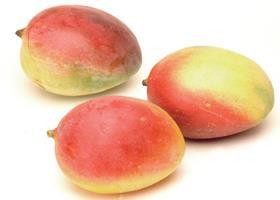
Mango growers in Australia’s Northern Territory are counting the costs of one of their worst seasons on record, with some industry sources suggesting production volumes dropped by 50 per cent from 2012.
As the season drew to a close in late December, 2013, Northern Territory Mango Industry president Ross Maxwell told the Australian Broadcasting Commission (ABC) crop loss was at its worst in Katherine, a key growing region for the increasingly popular R2E2 variety.
“We are still waiting for the final numbers to come in, but it will fall between 2 and 2.2 million trays harvested,” Maxwell said.
“The Katherine region was probably hit the hardest. Darwin fared a little bit better, but still, 50 per cent down is quite a bit when you consider this year there were 15,000 tonnes produced in the Northern Territory.
“In 2012 we produced 30,000 tonnes, and 2011 it was 28,000 tonnes, so we were steadily increasing until this year.”
The season was derailed from the outset, with temperatures failing to drop low enough to initiate flowering.“A run of 10 days under 12 degrees is generally required,” said Brett Jackson, produce marketing manager of grower-packer-exporter Seven Fields. “It just didn’t get cold enough for long enough.”
Growers and marketers also had to contend with a so called “mystery disease” that caused a defect, known as resin canal, to appear in some mangoes grown in the Northern Territory.While the defect has no impact on eating quality, the appearance of streaky black lines through the centre of the fruit makes it difficult to sell.
“This resin canal is such an insipid-looking disease and customers just won't go near it, even though the eating quality is not affected,” Sydney based wholesaler Carlo Ceravolo told the ABC.
Despite the significant challenges, Maxwell said there were a couple of silver linings, as the industry looks ahead to the next 12 months with renewed hope.
“The volume was down quite a bit, so the prices were up a little bit, and that sort of balanced it out,” Maxwell told the ABC.“It will hurt a lot of people, but in this industry, and I think it's the same in any horticulture industry, you know you are going to have these off years.”



